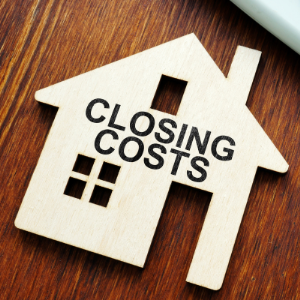
Understanding Equity in Real Estate Transactions in Maryland
Equity in real estate transactions is critical for Maryland homeowners who want to sell their property. Understanding equity entails comprehending the gap between your property’s current market value and the outstanding debt on your mortgage.
This information can significantly impact your financial results when selling a house in Maryland. Because of the state’s unique housing market, you must be familiar with local elements influencing property values, such as neighborhood patterns and economic situations.
Calculating your home equity precisely allows you to set the correct market price, negotiate effectively with purchasers, and forecast prospective profits or shortfalls. It is critical to consider closing expenses, professional commissions, and any liens on the property that may reduce your net proceeds from the sale.
Awareness of these issues enables Maryland sellers to make strategic decisions matching their financial objectives when navigating real estate transactions.
Calculating Home Equity: Key Factors for Maryland Homeowners

Several essential aspects must be addressed when determining home equity for Maryland homeowners to calculate the value received from selling a home appropriately. Home equity is the difference between a property’s current market value and its outstanding mortgage or lien balance.
Understanding local real estate market trends is critical in Maryland since they can significantly affect property values. Homeowners can also consider any changes or renovations that may have boosted their property’s value over time.
Furthermore, it is critical to understand unique state rules and potential expenditures in selling a house in Maryland, such as transfer taxes and closing charges, which can alter overall equity calculations. Regularly reviewing mortgage statements will help to maintain accuracy when calculating remaining loan sums.
By carefully considering these criteria, Maryland homeowners can better understand their financial situation and make informed decisions about selling their property.
How to Determine the Value of Your Maryland Property
Determining the value of your Maryland property is an essential step in knowing the equity requirements for selling your home. To accurately determine the market value of your property, first look into recent sales of comparable properties in your area. Current real estate market trends in Maryland should also be studied, since local demand and economic conditions can considerably impact property values.
Hiring a professional appraiser can give an objective appraisal based on several factors, including location, property attributes, and Maryland’s overall housing market climate. Online real estate platforms also provide tools for estimating home values using local data and current sales trends.
Remember that any additions or renovations you’ve completed will impact the value of your property; thus, document these improvements so that they can be successfully presented throughout the appraisal process. Understanding these critical components will help you set a competitive listing price and maximize equity when selling your Maryland house.
If you’re looking to skip the complexity of dealing with equity and just want a simple, stress-free way to sell your Baltimore, MD house fast, 4 Brothers Buy Houses buys homes for cash in Maryland—no repairs, no professionals, and no waiting around.
The Role of Market Trends in Selling Your House in Maryland
Understanding market trends is critical when selling your home in Maryland since they substantially impact the equity you anticipate getting. The real estate market in Maryland varies by location, with factors such as supply and demand, interest rates, and economic conditions playing essential roles.
For example, property prices often climb in a seller’s market with more buyers than available homes, increasing sellers’ potential equity. In contrast, in a buyer’s market, where there are more properties for sale than buyers, property values may stagnate or fall, limiting prospective equity gains.
Staying updated about local housing trends might help homeowners determine whether to sell. Understanding how state-specific issues such as property taxes and regional development affect home values can also provide valuable insights for optimizing returns on property sales.
Real-time data analysis and collaboration with skilled real estate specialists can provide advice targeting Maryland’s market dynamics.
Steps to Prepare Your Maryland Home for Sale
Preparing your Maryland property for sale entails numerous essential procedures to ensure a smooth transaction and maximum equity. Begin by doing a thorough market research to understand better Maryland’s current real estate trends, which will allow you to determine a competitive listing price.
Improving your home’s curb appeal is critical; consider landscaping, new paint, and minor repairs to provide a good first impression. Inside, tidy and depersonalize each room to help potential buyers visualize themselves in the place.
It’s also a good idea to handle any essential repairs or upgrades that could boost your home’s worth, such as upgrading old fixtures or enhancing energy efficiency. Staging your property can help to showcase its best characteristics and create a welcoming environment for showings.
Collect necessary data, including previous improvements and property disclosures, to help with sales. Working with an experienced real estate professional familiar with the Maryland property market can provide helpful insights and guidance.
Strategies for Maximizing Equity When Selling a House in Maryland
When selling a house in Maryland, homeowners must maximize their equity to achieve the maximum value for their property. Enhancing the home’s curb appeal is beneficial, as initial impressions can significantly impact potential buyers’ perceptions and offers.
Investing in landscaping, new paint, and modest exterior repairs can improve the property’s appeal and total value. Thorough market research can also help determine a competitive but realistic asking price that matches current Maryland real estate trends.
Hiring an experienced local real estate professional who understands Maryland’s home market peculiarities might also be beneficial. They can provide valuable information about buyer preferences and optimal pricing methods. Making innovative improvements inside the home, such as upgrading kitchens or bathrooms, can offer a high return on investment by appealing to current tastes.
Staging the home correctly allows purchasers to imagine themselves living in the room, resulting in larger offers and faster sales. Ensuring all relevant documentation and disclosures are completed correctly helps the deal go more smoothly. It develops trust with potential purchasers, allowing you to maximize your equity while selling your Maryland home.
Common Costs Involved in Selling a Home in Maryland

When selling a house in Maryland, it’s critical to understand the average charges, as they can affect your equity. The real estate professional commission is a considerable expense, ranging from 5% to 6% of the home’s selling price.
Sellers must also pay for closing charges such as title insurance, transfer taxes, and recording fees. Staging and prepping your house for sale may involve additional costs for repairs or modifications to increase its market appeal.
Maryland sellers should also consider property taxes, which must be paid up to the date of sale. If the home already has a mortgage, paying off the remaining sum will affect your net proceeds.
Understanding these charges allows you to assess prospective returns and manage your financial expectations when selling a home in Maryland.
How Closing Costs Impact Your Home Sale Profits in Maryland
When selling your Maryland property, it is critical to understand the influence of closing expenses on your profits. Closing costs include various fees, including title insurance, attorney fees, and transfer taxes, which can drastically lower your net gains.
In Maryland, sellers are often responsible for some of these charges, which vary by county. For example, transfer taxes in Maryland are typically shared between the buyer and seller, but this arrangement may vary depending on municipal legislation or negotiated agreements.
Real estate professional commissions, which typically range between 5-6% of the transaction price, are also one of the most significant expenses for sellers. Homeowners should also budget for any repairs or concessions purchasers require following inspections.
Awareness of these equity requirements and planning accordingly will help you optimize your profits when selling your house in Maryland.
Choosing the Right Real Estate Professional in Maryland: Tips and Advice
When selecting the best real estate professional in Maryland, you must examine several aspects that can considerably impact home-selling. Begin by looking for a real estate expert who understands Maryland’s property market and has a track record of successful house sales in your area.
An expert Maryland real estate professional will thoroughly understand local property valuations, equity requirements, and the complexities of state legislation affecting your home’s sale. Furthermore, emphasize brokers who provide thorough marketing tactics designed to promote your home’s unique attributes to potential purchasers.
It is also critical to evaluate their negotiation skills, as effective negotiation on your side can increase your return on equity. Personal referrals and online evaluations can provide vital information about an experts reputation and efficacy.
Ensure consistent communication. Selling a house in Maryland is more manageable and less stressful when you work with an expert who keeps you updated throughout the process.
Navigating the Legal Requirements of Selling a House in Maryland
Understanding the intricate processes and regulations unique to Maryland is necessary for navigating the legal requirements of selling a home. Sellers must comply with various disclosure duties, including presenting buyers with a Residential Property Disclosure and Disclaimer Statement that details any known flaws or concerns with the property.
Sellers should also be aware of lead-based paint disclosures if the home were built before 1978. Legal documentation, such as the sales contract, must be consistent with Maryland’s real estate regulations, with both parties clearly defining and agreeing on all conditions.
An experienced real estate attorney can assist sellers in navigating these challenges by providing valuable counsel on contract drafting and review. In Maryland, properly managing the transfer and registration of deeds is critical to avoiding future legal issues.
Understanding mortgage payback procedures is another crucial stage, as wrong handling can cause closing delays or additional charges. Sellers can smooth out the transaction procedure while following Maryland’s statutory standards by maintaining knowledge about these legal conditions and seeking professional counsel.
Tax Implications of Selling Your Property in Maryland
Understanding the tax ramifications of selling your Maryland home is critical for successfully navigating the real estate transaction. One important consideration is the capital gains tax, which may apply if you benefit from your property.
In Maryland, as in other states, homeowners can take advantage of the federal capital gains exclusion, which allows individuals to exclude up to $250,000 of profit from taxation and $500,000 for married couples filing jointly, as long as they meet specific criteria, such as living in the home for at least two of the previous five years. Additionally, sellers should be aware that Maryland imposes a state transfer tax on real estate transactions, which is usually shared between the buyer and seller unless otherwise agreed upon.
This tax is computed as a percentage of the sale price and varies depending on whether it is a primary house or an investment property. Understanding these tax requirements will help you prepare financially for selling your Maryland home.
Keeping detailed records of home modifications and related expenses can be helpful when calculating potential deductions or exclusions at both the state and federal levels. Consulting with a tax specialist familiar with Maryland’s regulations can provide additional information about your situation.
Marketing Techniques to Sell Your House Faster and for More Money

Utilizing innovative marketing strategies and highlighting your home’s best features will enable you to sell your home for the maximum price within a short period in Maryland. Make landscaping and exterior upgrades to improve curb appeal, as first impressions matter immensely.
Promote your house by taking quality photographs showcasing the house’s best angles and virtual tours online. Expand reach using social media and real estate platforms. While creating descriptions for advertisements, make sure relevant keywords such as “charming Maryland home” or “spacious family residence” are included.
Email advertisements tailored towards interested parties help keep them engaged, while open house sessions tend to create urgency in buying.
Using knowledgeable real estate professionals from around Maryland can be instrumental. Their market insights concerning pricing, negotiations, and other features will help you close a deal quickly and increase sales profits.
Negotiation Tips for Getting the Best Price for Your Home
While understanding equity requirements is essential when selling your home in Maryland, effective negotiation will always work to your advantage when achieving the best price for the property. Begin by conducting a complete market analysis to find ‘sold’ comparables near your home. This analysis will help you set a competitive asking price.
To improve your bargaining power, emphasize recent upgrades to the house, such as renovations or energy-efficient improvements that add value. To attract buyers, a good strategy is to remain flexible on counteroffers and terms, such as closing dates or contingencies.
Ensure you engage a good real estate professional who operates within Maryland and understands its competitive dynamics. They can defend your interests during negotiations. Also, pay attention to comments made by potential buyers during showings and open houses. This information can inform how you alter your marketing strategy.
Suppose you continually monitor housing market trends alongside buyer insights and make necessary changes to your negotiation. In that case, you will likely achieve huge equity gains while getting an incredible sale figure for your Maryland house.
Evaluating Offers: How to Choose the Right Buyer for Your Maryland Property
When reviewing offers on your Maryland property, consider other factors besides the purchase price. Selling a home usually requires some equity, and understanding how each potential buyer qualifies will tell you how financially solid they are, which impacts their ability to buy.
Mortgage pre-approved buyers should be given preference because it shows that they are willing and able to follow through. Look at all the contingencies associated with each offer. Some offer fewer contingencies, which helps process the sale.
Understanding why every prospective buyer wants a particular closing date is crucial, as it has to work with your needs and schedule. These factors will help you pinpoint the best buyer when selling your house – one that aligns with your financial and logistical expectations.
Real estate practitioners familiar with Maryland can provide guidance by helping determine reliable buyers who meet vital equity benchmarks. This ensures you do not miss out on deal opportunities, rather than getting stranded due to unnecessary delays.
Exploring Alternative Options: Renting vs Selling in the Current Market
With current equity requirements, there are strong reasons for homeowners to consider renting or selling an additional property, especially within Maryland. Each decision molds into one another, outlining thoughts alongside today’s housing market volatility.
Selling your property could enable you to access your equity swiftly and leverage current market conditions, but it also means forfeiting ownership and any potential appreciation.
Renting provides ownership while supplementing income, making it more appealing when future value increases seem likely. Renting also offers tax advantages, aiding mortgage payments; however, tenant maintenance demands active involvement.
These considerations will help determine how best to maximize equity from a home in Maryland. Still, all alternatives have unique financial consequences and risks that must be assessed in light of prevailing market conditions and personal aspirations.
Pros and Cons of For Sale By Owner (FSBO) Listings
Like most regions across the country, selling your home with an FSBO listing in Maryland has merits and disadvantages, including higher equity requirements. One notable pro is keeping a larger share of home equity after sidestepping real estate agency dues because sellers no longer need to pay commission fees.
Homeowners have complete control over the selling procedure, including pricing negotiations, because they understand the local market. Direct talks with purchasers add control over the range and scope of action. However, exposure is limited for FSBO (for sale by owner) postings compared to listings through certified experts who have access to multiple listing services (MLS).
This diminished exposure may result in a prolonged time on the market, affecting the final sale price and equity received. In addition, sellers who are not familiar with specialized real estate law and practices in Maryland run the risk of improperly completing legal documents, which could lead to complications when dealing with unsupervised paperwork.
Those seeking to maximize their equity alongside smooth transactions must handle these factors carefully.
Utilizing Technology and Virtual Tours to Enhance Your Listing
Technology such as virtual tours greatly improves other parts of the listing when selling homes in Maryland. With enhanced digital access comes greater competition for attention. Making an impression using high-quality images and captivating virtual buyer walkthroughs is essential. These tools allow potential buyers to view everything, including the property’s layout and features, from the comfort of their homes. 3D walkthroughs and interactive floor plans can vividly capture your property’s distinctive aspects, setting it apart from other properties in the market.
Enhancing your listing with modern technology will increase visibility in Maryland’s high-stakes real estate competition. Such features will appeal to buyers who conduct extensive research online before scheduling a viewing. Additionally, spending on professional photography and virtual tour software that showcases your property may facilitate quicker sales at more favorable prices.
How Interest Rates Affect Real Estate Prices and Seller Decisions

Interest rates tend to play an essential role in determining real estate prices and influencing sellers’ decisions. This is especially common within the Maryland housing market. Increased interest rates usually mean prospective buyers can spend less on their mortgages, increasing property demand and raising prices.
Sellers seeking maximum value for their sale will benefit from this situation. On the other hand, borrowing money becomes expensive if interest rates increase, dampening buyer enthusiasm and decreasing demand. Sometimes, sellers may experience longer than average times to receive offers on their properties or face pressure to lower their prices to draw interest.
For Maryland homeowners planning to sell, comprehending the dynamics between market forces and interest rates is vital, as it determines how they set prices and when they list properties to maximize equity gains.
Post-sale Considerations: Financial Planning After Selling Your House
Planning financially after selling a home is essential because homeowners must understand how to appropriately spend the sale proceeds to enhance their long-term economic health.
One key focus is debt settlements associated with owning real estate, like paying off a mortgage or clearing home equity credit lines. Paying Royalty taxes, especially capital gains taxes, is also vital due to higher taxation ceilings, especially if one does not fall under certain restrictions.
A good financial advisor will help homeowners maximize equity by properly reinvesting through other homes, stocks, and bonds, or even funneling money into retirement accounts. They will enhance stability while protecting one’s financial situation post-sale.
What Is the Minimum Equity to Sell a House?
Knowing the Maryland home selling equity threshold is essential for each homeowner. Equity refers to the value of your interest in property after deducting any claims against it, such as the remaining mortgage balance.
Regarding Maryland regulations, there isn’t a minimum equity requirement when selling an existing home. However, a lack of equity will put significant limitations on selling opportunities. Selling while maintaining at least 20% equity would be ideal since this benefits not only the seller but also aids in covering expenses from closing costs and other payments like staging or repairs.
This margin protects you from losing value at closing appointments, though many scenarios can deviate from this. These include personal factors like sales surges in specific areas, which prompt homeowners to sell regardless of market demand, and increased relocation appeal based on uncertain conditions.
A specialist focusing on overall real estate strategies will help determine what works best for you and maximize your selling potential within Montgomery County markets.
Do I Have to Pay Capital Gains When I Sell My House in Maryland?
Determining if the capital gains tax will cause losses when Maryland homes’ value appraisals cross-compare for resale under purchase price and property acquisition fee plays a vital role in appraisal screening models used across counties, bred into blended markets. It services every angle about taxation fees while revolutionizing cross-section integration across state lines and bound worldwide portfolio balancing.
Though homeowners are eligible for exceptions that may significantly reduce or eliminate their tax burden, for instance, in Maryland, if the property served as your primary residence for a minimum of two out of five years before the sale, you may qualify for capital gains exclusion up to $250,000 if you are single and $500,000 if married filing jointly.
It is essential to mention that these limitations only apply to primary homes and not investment properties. Consult with a local tax expert or real estate professional familiar with Maryland laws to determine potential capital gains taxes after selling your Maryland home. They will assist you in strategically utilizing available exemptions and deduction options to maximize equity.
These guidelines help you adequately prepare for potential financial obligations arising from selling your house in Maryland.
How Much Equity Should You Have in Your House Before You Sell?
The information provided here is essential. It helps prospective sellers understand the selling process in detail while narrowing down what makes sense based on their equity position, last assessed, vs. the amount owed on the mortgage.
Homeowners need at least 20 percent in equity before selling, enabling them to cover all closing costs, expert fees, and any remaining mortgage amount without losing money financially.
Moreover, significant equity can act as a buffer for unplanned expenses during the sale process, enhancing the net proceeds from the sale. Equity estimation analyzes local market trends and property prices, enabling sellers to identify whether they meet their financial goals. Sellers in Maryland are no exception.
What Are The Closing Costs For A Seller In Maryland?
Understanding net proceeds is vital for sellers, and this starts with grasping all closing costs, which differ from one state to another. In Maryland, the main components of seller closing costs include paying real estate commissions that range from 5% to 6% of the home’s sale price. These commissions make up many seller closing costs alongside other incurred expenses.
Sellers should also be prepared for transfer tax liability and recordation fees, which vary by county and typically average between 1–2% of the sale price. In addition, expenses like homeowner insurance, title insurance, attorney fees, outstanding property taxes, or liens can further increase closing costs and should be carefully considered when estimating the total amount.
Moreover, if the seller has taken out a mortgage on the property, it has to be settled against the sale profits. Knowing how much equity and closing costs there are helps Maryland home sellers plan and minimize surprises during this stage of the purchasing journey.
Home sellers who work with an experienced real estate professional or a lawyer who understands Maryland’s laws can achieve a seamless transaction and receive optimal value from their sale.
If you want to skip the hassle of home equity, 4 Brothers Buy Houses buys houses for cash in Maryland, including Baltimore, MD. No repairs, fees, or delays—just a fast, simple way to sell your home as-is. Contact us at 202-601-4928 today to get your offer!
Helpful Maryland Blog Articles
- Selling Partial Ownership Of A House In Maryland
- Equity Requirements For Selling Your House In Maryland
- Top Property Managers In Maryland
- Tenant Damage vs. Normal Wear And Tear In Maryland Rental Properties
- Who Pays For Appraisal And Inspection In Maryland
- How To Successfully Sell Your House At Auction In Maryland
- Can An Executor Sell Property In Maryland
- Homeowners Insurance When Selling Your Maryland Home
- Selling Your Maryland Home As-Is Without Renovations
- Selling Costs For Homeowners In Maryland
- Can A Seller Legally Back Out Of A Real Estate Contract In Maryland?
- Selling Your Maryland Home With An Incarcerated Spouse

| HOME LOANS | LEGAL SERVICES | LAWYER | CASH | HOUSE PRICE | MEDIAN HOME PRICE |
| LENDING | LOANS | LENDER | CREDITS | ADVERTISERS | PIXELS |
| TITLE COMPANY | HOMEOWNERS ASSOCIATION | HOA | HOME EQUITY LOANS | ESCROW | ESCROW ACCOUNTS |
| EARNEST MONEY | CREDIT SCORE | COPYRIGHT | COMPANY | CALIFORNIA | BROKERS |
| BANKING | BANK | HOME SALE PRICE | CLOSING COSTS AND | COSTS OF SELLING A |
